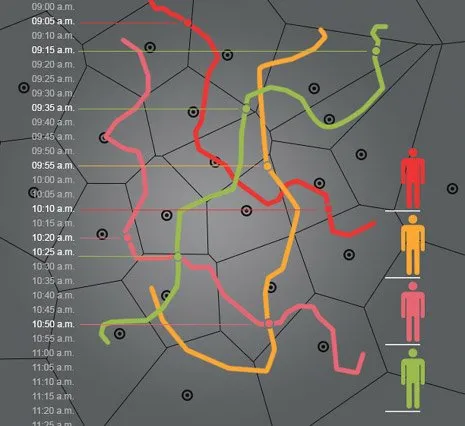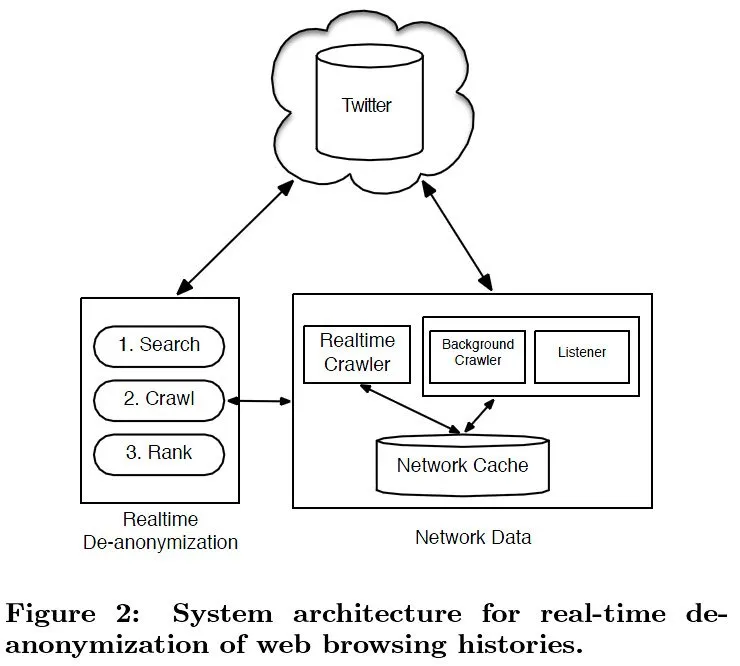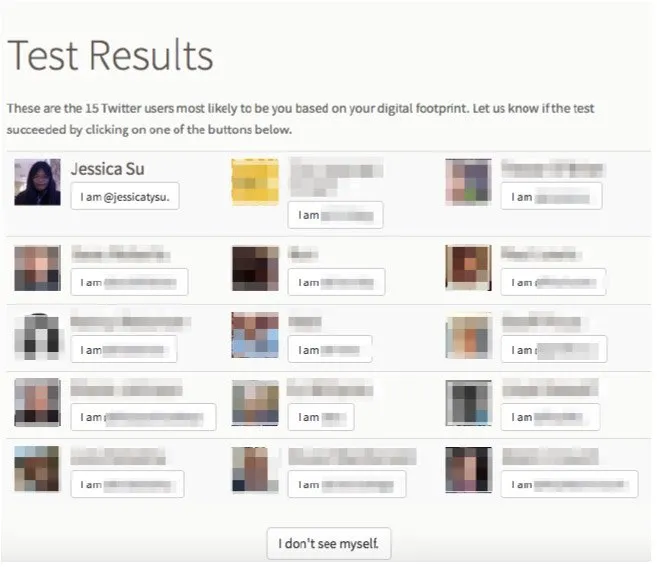Your online behavior and identity can be determined by linking browsing history with social media profiles.

source
Princeton and Stanford University researchers will be presenting a research paper at the 2017 World Wide Web Conference Perth, Australia, in April, where they show that your social media profile like Twitter, Facebook or Reddit can be linked to your browsing history for companies to know who you are based on what you look for online.
"Each person's browsing history is unique and contains tell-tale signs of their identity"
While this isn't new for companies like Google or Facebook which are known to track users online and know their identities, but these are companies which disclose their tracking motives upfront which customers can choose to decline creating accounts with. The new research is not about this type of tracking, but about how anyone who has access to browsing history can identify a user through analyzing public information found online, such as what is publicly available on social media sites.

source
Online trackers can de-anonymize web browsing data. Given a distinct social network for each individual and the unique list of links appearing in their own feed, and assuming that users visit links in their feeds with higher probability than any other user would, browsing history can be used to identify markers related to a public social media profile.
"Users may assume they are anonymous when they are browsing a news or a health website, but our work adds to the list of ways in which tracking companies may be able to learn their identities."
The FCC has recently adopted a new privacy rule that allows ISPs to store and use consumer data when it's "not reasonably linkable" to individual users.
The researchers developed a model and tested simulated browsing histories. They showed that with a history of 30 links originating from Twitter, they could deduce which corresponding twitter profile it came from more than 50% of the time.

source
To see how well this model works in the real world, they recruited 374 people and asked them to donate their web browsing history's. With this data, they were able to correctly identify 70% of the participants through their public information on the Internet. The researchers further showed that many online trackers of data are embedded in many websites that enable this type of de-anonymization can be carried out with high accuracy.

source
The research has effectively shown that it is easy to build a 'de-anonymizationer' to compare anonymous web browsing histories with links appearing in public social media accounts. There are strong limits to data anonymization. Rethinking our online privacy and data protection is something to consider in the age of information. We are leaving digital fingerprints that can be unique and linkable to our publicly disclosed identities.
Personally, I can attest to online tracking (but not to the above severity). I have gone searching for products, some services, and then later on I keep seeing ads for what I previously did searches for on many sites that have ads. The ads on unrelated sites, like 0-day downloads, still show me ads that target my browsing history. Facebook shows me the same ads. Somehow, through the cookies I get from certain sites, or some other way, they know what ads to show me.
References:
- Your 'anonmyized' web browsing history may not be anonymous
- De-anonymizing Web Browsing Data with Social Networks
If you appreciate and value the content, please consider:
Upvoting  , Sharing
, Sharing  or Reblogging
or Reblogging  below.
below.
@krnel
2017-01-24, 9:58am
